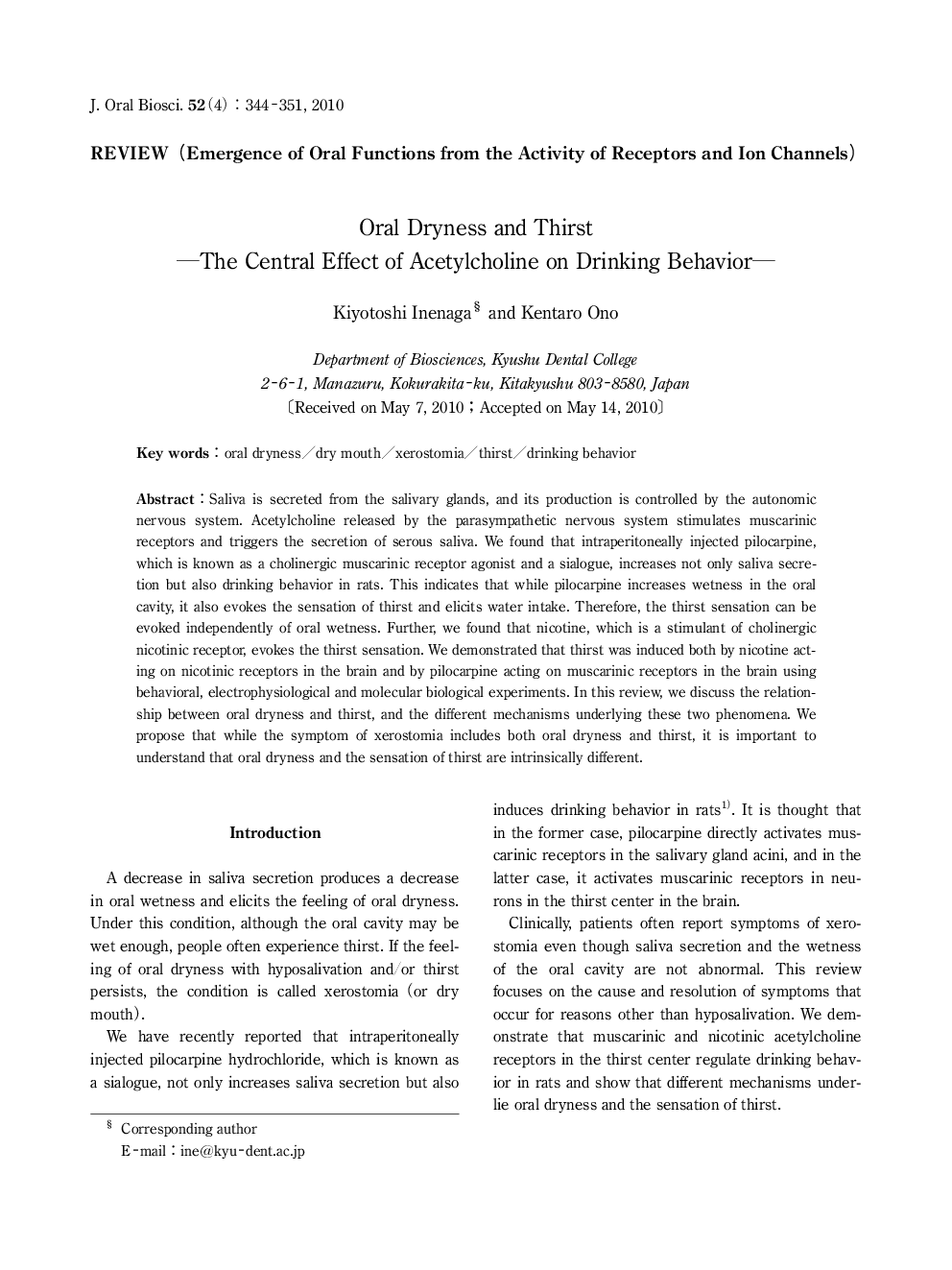| Article ID | Journal | Published Year | Pages | File Type |
|---|---|---|---|---|
| 2776814 | Journal of Oral Biosciences | 2010 | 8 Pages |
Saliva is secreted from the salivary glands, and its production is controlled by the autonomic nervous system. Acetylcholine released by the parasympathetic nervous system stimulates muscarinic receptors and triggers the secretion of serous saliva. We found that intraperitoneally injected pilocarpine, which is known as a cholinergic muscarinic receptor agonist and a sialogue, increases not only saliva secretion but also drinking behavior in rats. This indicates that while pilocarpine increases wetness in the oral cavity, it also evokes the sensation of thirst and elicits water intake. Therefore, the thirst sensation can be evoked independently of oral wetness. Further, we found that nicotine, which is a stimulant of cholinergic nicotinic receptor, evokes the thirst sensation. We demonstrated that thirst was induced both by nicotine acting on nicotinic receptors in the brain and by pilocarpine acting on muscarinic receptors in the brain using behavioral, electrophysiological and molecular biological experiments. In this review, we discuss the relationship between oral dryness and thirst, and the different mechanisms underlying these two phenomena. We propose that while the symptom of xerostomia includes both oral dryness and thirst, it is important to understand that oral dryness and the sensation of thirst are intrinsically different.
